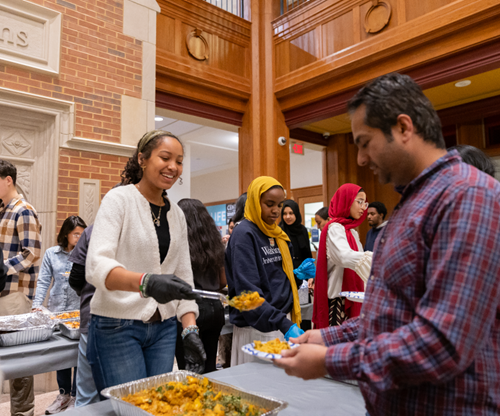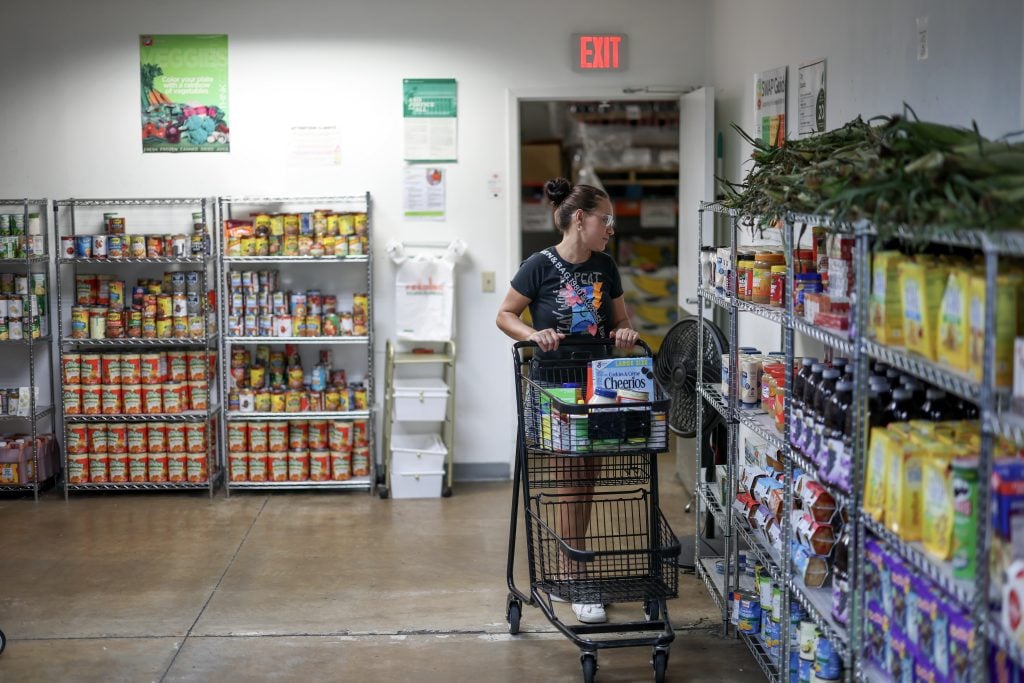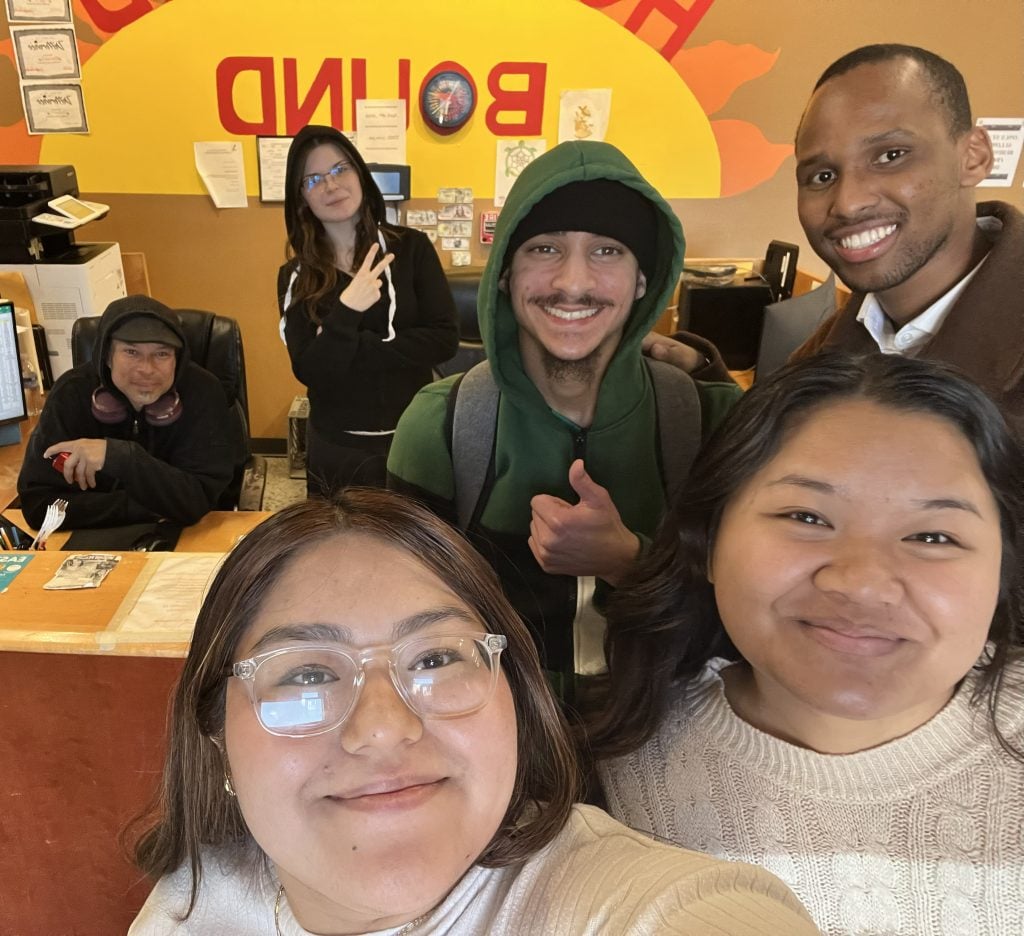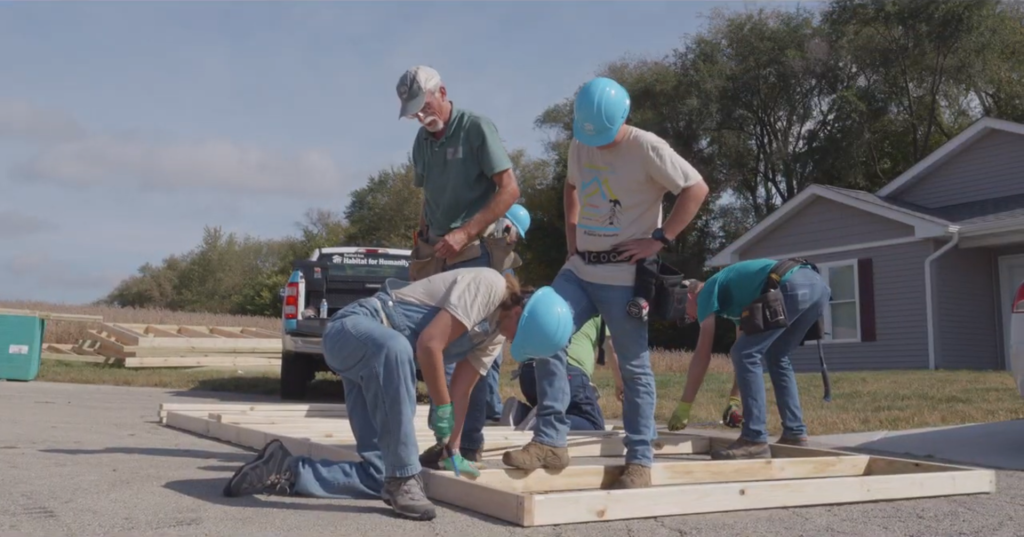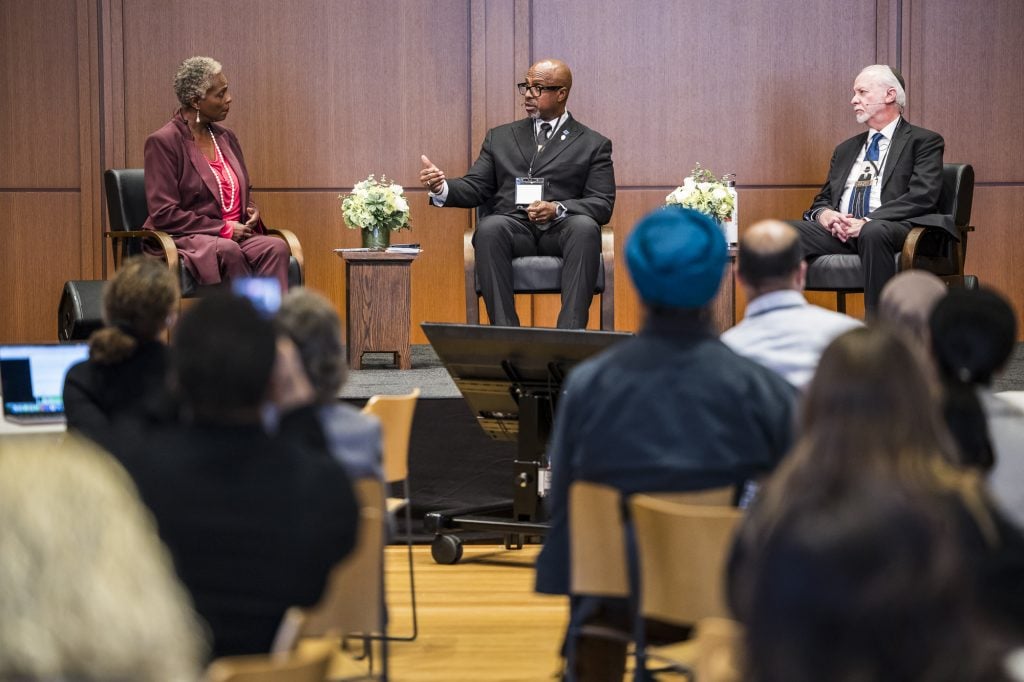Eboo Patel, founder and president of Interfaith America, said, “Bridges do not rise from the ground or fall from the sky. People build them.” With the support of the Advancing Religious Pluralism grant from Interfaith America, students are building bridges of interfaith understanding at Washington University in St. Louis (WashU) through two projects: the Interfaith Ambassadors program and the Spring Break in St. Louis: Interfaith in Action program.
Eight WashU undergraduate students served as Interfaith Ambassadors for the 2024-2025 academic year. We began the year by reflecting on the values that anchor our bridgebuilding work: hospitality, curiosity, connection, inclusivity, and a desire for unity. We mapped out various gaps that could be bridged on our campus to increase understanding: gaps in knowledge of diverse religious beliefs and practices, gaps between groups that may often disagree, and gaps between interfaith opportunities and students’ knowledge that they are welcome to take part. Students brainstormed which campus partners and student organizations would be helpful collaborators.
Several Interfaith Ambassadors took on a photo storytelling project. Inspired by the photoblog “Humans of New York,” students interviewed their peers to learn more about their religious, spiritual and ethical journeys. These stories, along with vibrant photos of the students interviewed, were then displayed at our large interfaith events.
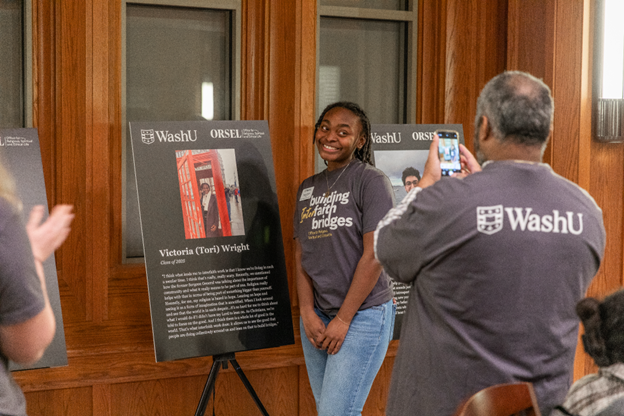
Eve King conducted several interviews and designed the story display boards. Reflecting on her experience, she wrote, “I learned more about the value of understanding each other’s lived experiences and personal stories. I also learned more about how to ask questions of curiosity with tact during conversations around differences.”
Interfaith Ambassadors hosted a large interfaith iftar in March. In collaboration with the Muslim Students Association, they planned a brief program to introduce their peers to the practices of Ramadan, and to share how peers of Roman Catholic, Hindu, and Jewish incorporate fasting into their religious and spiritual practices. In addition to the program, student leaders learned about the logistics involved in feeding hundreds of students. Grounded in the values of hospitality and inclusion, we carefully designed the menu and program to welcome as many people as possible from diverse religious and philosophical backgrounds.
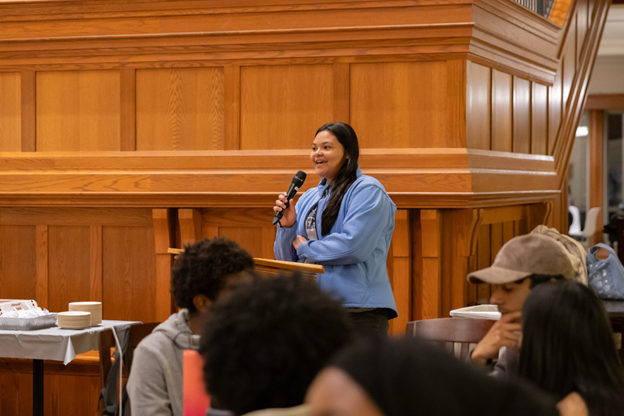
Interfaith Ambassador Sophia Then reflected on skills she learned through the interfaith iftar and other programs: “Serving as an Interfaith Ambassador this past year has truly taught me how to listen, and not just how to listen, but how to truly listen well and listen to understand and find common ground with my peers. I’ve learned how to practically and logistically build bridges between two or more disparate groups or viewpoints. I’ve learned how to serve others with compassion and empathy… and also how to effectively schlep large amounts of food!”
The Interfaith Ambassadors not only designed programs for their peers, but they also developed valuable interfaith leadership skills this year.
Victoria Wright wrote about her experience as an Interfaith Fellow: “There are many avenues where people can go for dialogue and conversations with people but not many avenues where people can lead with humility and get to know people for their intrinsic human qualities before coming to judgment. Interfaith work always teaches me about the importance of building bridges with people of different backgrounds.”
Students also learned the adaptability needed in interfaith bridgebuilding. Interfaith Ambassador Dhyuti Venkataraman wrote, “I learned about the difficulty of planning and implementing programs, how there has to be strong alignment with need and time for programs to work, and when it is necessary to pivot or let a program go.”
Assessment of the Interfaith Ambassadors program revealed a positive impact on the student ambassadors’ growth as interfaith leaders and their sense of belonging. They reported an increased understanding of diverse worldviews other than their own, and an increase in the frequency of meaningful engagement with peers at WashU who have religious or philosophical identities other than their own.
The second key pillar of our Advancing Religious Pluralism programs was an immersive Spring Break experience called Spring Break in St. Louis: Interfaith in Action. Seventeen students, both graduate students and undergraduates, took part in the program in March 2025.
Students participated in hands-on service at Greenwood Cemetery, which was organized in 1874 and was the first non-sectarian cemetery for African Americans in the St. Louis metropolitan area. We also volunteered at the food pantry at The Episcopal Church of St. Stephen and the Vine and participated in a neighborhood clean-up with St. Francis de Sales Oratory. We participated in a community interfaith iftar, toured the Griot Museum of Black History, and talked with a leader of the Love the Lou organization. Interfaith dialogue was woven throughout the program, as students engaged an interfaith panel of leaders working for justice through various community partnerships.
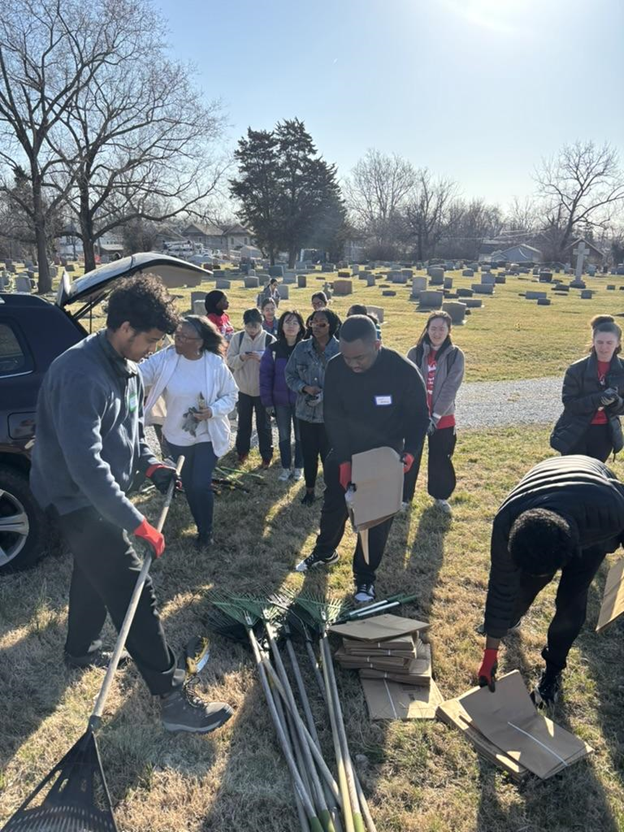
Participants in the Spring Break in St. Louis: Interfaith in Action program reflected on what they learned from the experience, including:
“I learned about many initiatives that leaders in the St. Louis community undertake to help heal their communities and envision a better future.”
“The most important thing I learned from this program is the importance of interfaith harmony.”
“I learned more about the St. Louis community, its culture, and history. I also learned about the different phases that the city went through, including its growth, challenges, and achievements over time. Additionally, I learned about various areas where I could offer hands-on help and make a positive impact in the community.”
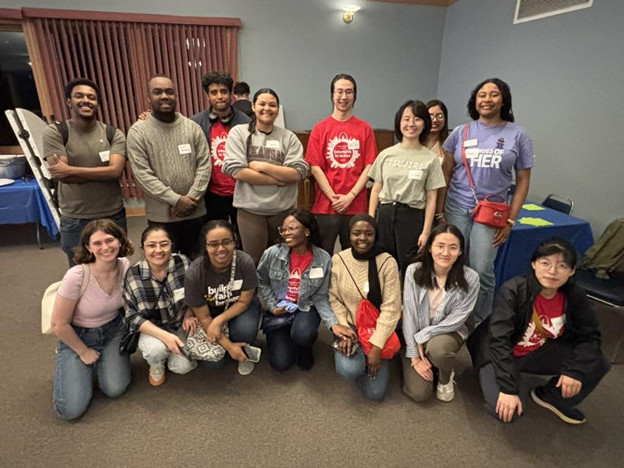
Washington University in St. Louis is grateful for the support of Interfaith America and the Advancing Religious Pluralism grant which made our Interfaith Ambassadors and Spring Break in St. Louis: Interfaith in Action programs possible. We will continue the momentum built this year as we continue to build bridges of interfaith understanding on campus and in our communities.
The Reverend Callista Isabelle formerly served as the inaugural Director for Religious, Spiritual & Ethical Life at Washington University in St. Louis and currently is the Associate Dean of the College for Religious and Spiritual Life and Contemplative Practices at Vassar College. Prior to WashU, Callista served as College Chaplain at Muhlenberg College and Associate University Chaplain at Yale University. Callista earned her Master of Divinity degree from Yale Divinity School, and a certificate from the Yale Institute of Sacred Music. She holds a Bachelor of Arts degree from Gustavus Adolphus College. Callista is an ordained pastor in the Evangelical Lutheran Church in America.
